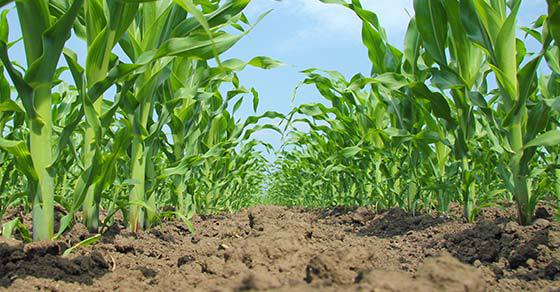The White House recently announced three initiatives that will help to mitigate the rising cost of food hitting Americans, as well as food shortages being seen globally due in large part to the Russia-Ukraine conflict. The initiatives center on improving crop production in the US, with fertilizer production a key focus.
The initiatives are seen as a welcome reprieve by many in the industry, not the least of which is The Fertilizer Institute, but as the group outlines, the work has only just begun.
White House Efforts to Increase Crop Production
The White House has set its sights on domestic crop production to curtail the rising food costs and global food shortages associated with the fractured supply chain, laying out a three-pronged approach:
Expand Crop Insurance
The Biden-Harris Administration will expand crop insurance for double cropping up to an additional 681 counties.
Double cropping, in which farmers plant a second crop on the same land in the same year, is often not eligible for crop insurance, due to its higher associated risk.
By increasing eligibility for double croppers, more farmers will have the financial security to boost production, without having to substitute crops or bring new land into production, according to the White House.
Make Precision Agriculture Technology More Accessible
Precision agriculture is a growing trend among crop producers, fostering more efficient nutrient management for both cultivars and the environment. This increase in efficiency ultimately translates to lower input costs for growers, as well as reduced pressure on existing nutrient resources.
The White House plans to increase access to cost-sharing assistance and planning programs already in place in order to reduce barriers to adoption for farmers.
Double Down on Domestic Fertilizer Production
The White House also announced they will double their initial planned investment of $250 million to $500 million in an effort to boost domestic fertilizer production. A global fertilizer shortage is the primary underlying threat to meeting food security needs, with fertilizer prices having more than doubled in the past year. Boosting domestic fertilizer production could provide critical relief to growers and consumers alike.
This investment is also likely to have a trickle-down effect, increasing jobs and bolstering demand for fertilizer production equipment and granulation process development services.
In a comment on the initiatives to local growers at a farm in Illinois, President Biden praised US farmers: “Our farmers are helping on both fronts: reducing the price of food at home and expanding production and feeding the world,” as Bloomberg reports.
Industry Hails Push for Domestic Fertilizer Production
In response to the increased grant money aimed at increasing domestic fertilizer production, The Fertilizer Institute (TFI) released a statement applauding the Administration’s efforts and commending President Biden and the USDA, with TFI President & CEO Corey Rosenbusch commenting:
“The importance of fertilizer in food production and national security is taking center stage. Fertilizer increases crop yields that can be attributed to feeding 50% of the global population,” Rosenbusch said. “TFI supports efforts to bolster fertilizer supply through domestic production and technology; and we also urge policy makers to remove the regulatory burdens that inhibit growth of existing fertilizer production.”
TFI emphasized the need for policy changes as part of the approach, making a number of additional recommendations to policy makers. Short-term recommendations laid out by the group include:
- Imploring China to reduce or eliminate fertilizer restrictions
- Encouraging financial institutions to use fertilizer exemptions
- Eliminating the cross-border vaccine mandate between the US and Canada
- Getting rid of hours of service (HOS) restrictions on agricultural commodity shipments
- Modernizing weight restrictions for six-axle trucks
- Waiving the Jones Act restrictions
- Incentivizing growers to adopt 4R Nutrient Stewardship practices
The group also outlined a number of medium-to-long-term objectives they deem as important to progress, including the incorporation of potash and phosphate on the USGS’s list of Critical Minerals.
Conclusion
With the war in Ukraine upending global food security at home and abroad, the United States’ effort to boost domestic crop production and increase fertilizer production will be essential tools in managing the crisis.
As a fertilizer industry veteran, FEECO remains a critical resource in fertilizer process development and the world’s most reputable granulation equipment and systems. As the US looks to boost domestic fertilizer production, FEECO continues to stand at the ready in assisting our customers to bring their advanced granular fertilizer products to market. For more information on our fertilizer granulation equipment and services, contact us today!


